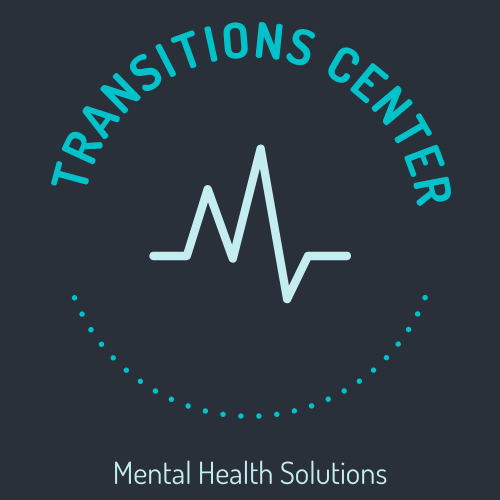Everyone has experienced stress at some point in their lives. Some of us experience it more than others, but is there a way to tell if your stress level is too high? This article will explore the ways that you can tell and what you might be able to do about it.
It all starts with self-awareness – knowing how much work or school stresses you out, whether family issues are wearing on you, or if any other factors like illness or addiction could be making things worse. Once you know what’s causing your stress levels to rise, then the next step would be figuring out strategies to lower them back down again. The most important thing is not beating yourself up over feeling stressed sometimes – for most people, a little bit of pressure.
The 5 Most Common Causes of Stress
1.Work: It’s no surprise that work is the number one cause of stress. With so many responsibilities, deadlines and expectations to meet, it can be really easy for even the most balanced person to let their work become a source of constant worry or frustration. Make sure you are aware of how much time you’re spending at your job compared with other aspects in your life like family and friends–this will help keep things in perspective! Or try taking small breaks throughout the day so that there’s some space before getting back into intense projects.
2. Family: Family dynamics can often lead to high levels of anxiety because they force us out of our comfort zone and make us vulnerable (think Thanksgiving dinner). While this level of conflict may not seem like a huge concern, it does impact our ability to deal with stress. Make sure you’re following healthy boundaries and avoiding any extreme reactions–these can make the situation worse!
3. Relationships: For many people, relationships are an important source of support. When they go wrong or end in general, it’s natural for this to lead to feelings of sadness and anxiety. While there is no magic formula that will “fix” things right away (no matter how hard we wish!), there are some practical steps you can take to ease your mind. Reach out for help from friends and family members who care about you; journaling can also be helpful because it forces us into solitude which allows us time to reflect on what happened rather than get caught up in our emotions.
4. Money: Money can be a source of anxiety because it seems so out of reach for many people. Whether you’re worried about your credit card debt, paying off student loans or even just saving up enough to cover the cost of living–money is something that most people struggle with at some point in their lives! If this is an issue for you, make sure you have ways to cut back on expenses and save money when possible. Set reasonable goals for yourself and then figure out what steps need to take place in order to meet them! It’s never too late (or too early!) to start working toward financial stability which will allow you more peace of mind than ever before.
5. Health: Health issues are another major source of stress. Whether it’s a chronic condition like diabetes or an acute event such as the flu, health problems will almost always be associated with feelings of anxiety and concern. Take care to maintain healthy habits–eating well, getting enough sleep and exercising regularly can all make a difference!
Stress makes you feel overwhelmed and out of control. It’s not just an emotion; it has the power to cause physical changes in your body, too. The question is: how much stress are you willing to live with? Whether it’s from work or personal life, we all need some relief sometimes. If you’re feeling stressed out, there are ways to get back on track so you can enjoy your day-to-day life again!
7 Ways to Get Back On Track When You’re Stressed
1.Breathe deeply: Deep breathing has been shown to lower heart rates and calm the nervous system. Taking deep breaths will allow oxygen to circulate through your body more effectively which in turn helps regulate anxiety levels as well as blood pressure.
2. Get into nature: Getting outside allows us to take our minds off of work or other things that might have caused stress in the first place. We tend to feel better when we’re around trees because they release natural stress relievers like beta-endorphins that promote relaxation.
3. Do something kind for others. As Dr. Stephen Post tells us in his book The Power of Kindness “it’s not possible to have too much love.” When we give love, it fills up our own reservoir of well-being and happiness enabling us to better deal with life’s challenges. If you are struggling with stress, start small by spending time volunteering your service at organizations like the soup kitchen or homeless shelter near where you live””.
4. Exercise regularly. Exercise has been shown to decrease levels of stress and anxiety
5. Eat a healthy diet. A recent study found that those who eat more fruits, vegetables, whole grains and legumes tend to have lower levels of depression than people who don’t. It helps cut down on the stress hormones adrenaline and cortisol by providing your body with carbs for energy instead.
When we are under pressure from external sources, our defenses go up which leads us to push ourselves even harder in order to meet expectations. Unfortunately, this cycle often leads down a spiral where you feel worse and worse but have no idea how to stop because there doesn’t seem like any other way out but more hard work! If you find yourself in this situation, take a break from work and focus on things that are not related to the cause of your stress. This will give you time to do some self-care which can help recharge your batteries so you’re ready for whatever comes next!
About the Authors
Transitions Center for Natural Mental Health Treatments for a variety of physical and mental dependency issues and conditions. Substance use disorders are difficult to understand for many people. The physical and mental aspects of any substance disorder are complicated and unique to the individual suffering. The differences between physical and psychological dependency vary but have some similarities. Transitions Center for Natural Mental Health Treatments help the public know what to look for as a means of helping a loved one cope with the challenges of mental health disorders.
This article was written with the help of Mary Jane’s CBD Dispensary, a top cbd online. CBD products have worked with many people who have physical, mental or emotional disabilities. They are passionate about helping their customers find relief by providing them with quality-made CBD Hemp products that work best for their needs. If you need help finding the right product for your specific health concerns, check out their site today!

